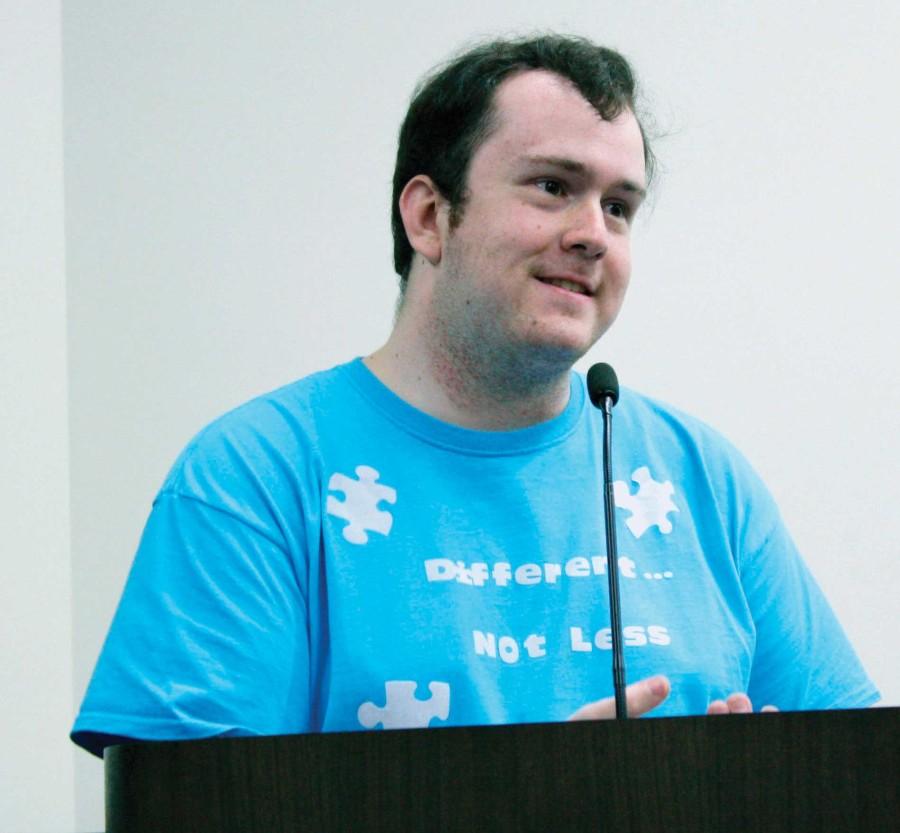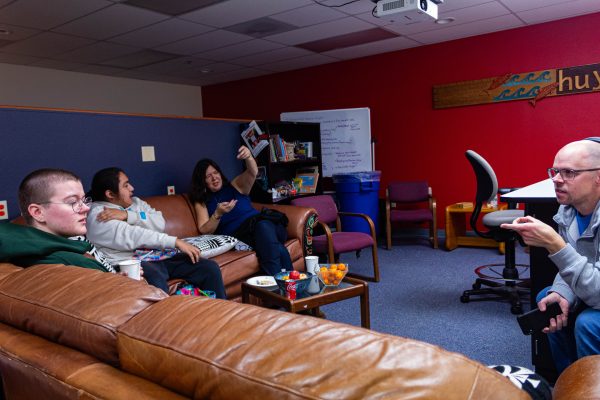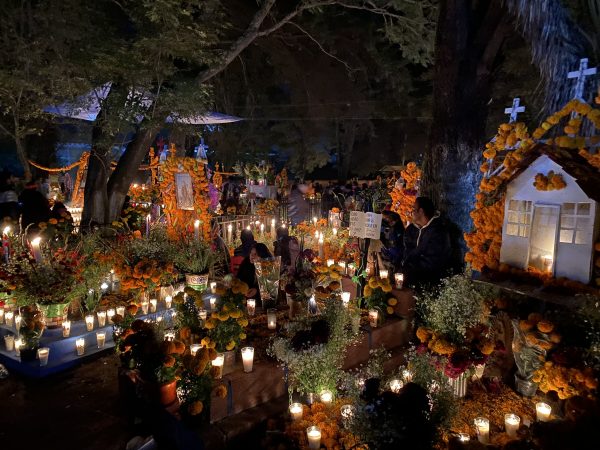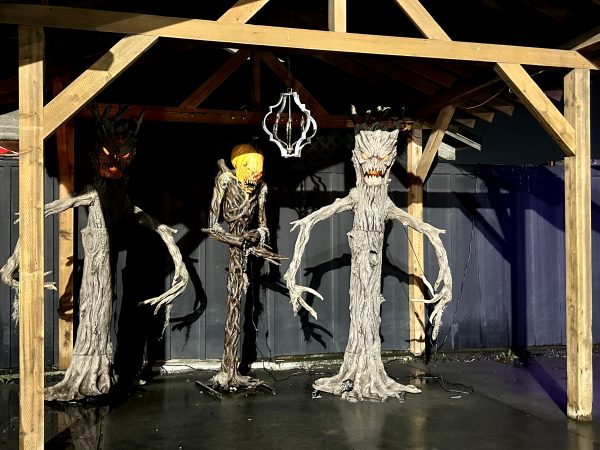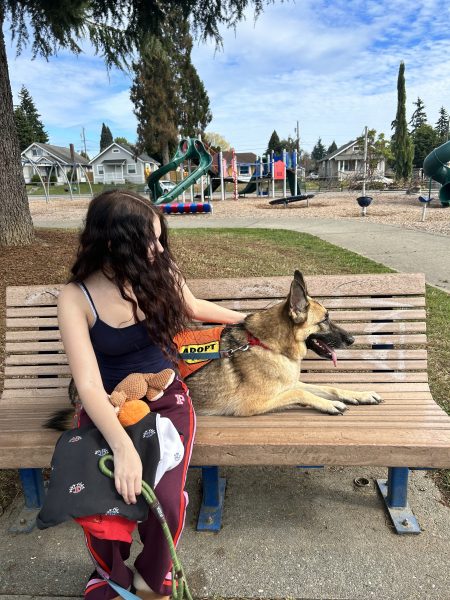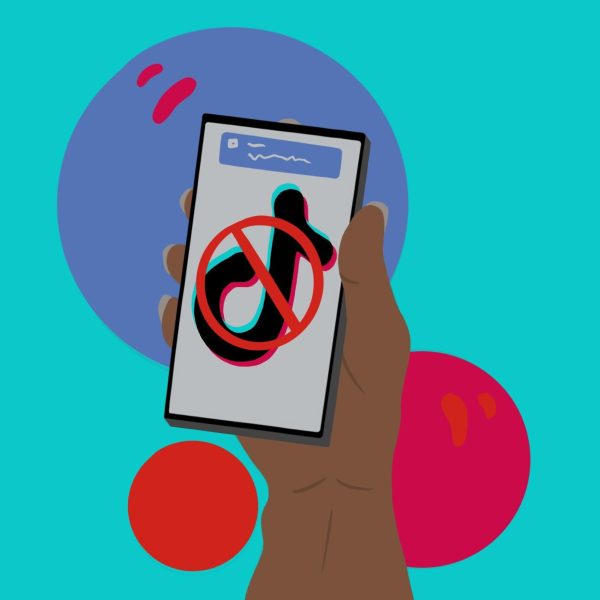“Aren’t we all different anyway?”
Nichols Eveland speaking in Jackson Center on April 9th at Different, Not Less: Autism Awareness. Nichols, who is autistic, shared his story and showed a video of people close to him to better inform others about autism. Photo Credit: Justyce Wright
1 in 68 children in the United States is diagnosed with autism according to Autism Speaks, the world’s leading autism research and advocacy group. Autism is a spectrum disorder; there are different types that are all under the umbrella diagnosis of Autism Spectrum Disorder, or ADS. Each disorder has varying degrees of difficulties with social interaction, verbal and no verbal communication and repetitive behaviors.
There is not a single known cause for autism but there has been evidence that it can be genetic and environmental factors can play a role in the cause. However it is important to remember that it is not caused by bad parenting or stress, nor is it a mental illness.
Paul Curd, a counselor at EvCC says that early intervention and treatment is key when you are given an autism diagnosis. Usually a diagnosis happens between the ages of 3 and 4. Along with early treatment, consistent treatment is equally important for their success.
Nichols Eveland, a student at EvCC and ASB VP of Public Relations and Student Involvement, was diagnosed with autism when he was 5 years old but his parents waited to tell him till he was 13 because they felt he would not fully understand till he was older. Nichols never thought of himself as being different because as he says, “Aren’t we all different anyway?” His diagnosis gave him a better understanding of himself.
Meeting Nichols, it’s hard to believe anyone could think anything less of someone who is autistic but he says that is one of the biggest misconceptions people on the spectrum face. “So many people are scared of it” he says. People on the spectrum are sometimes viewed as less of a person, or like they can’t be on the same level as others. He says that people sometimes see the autism more than the actual person.
Nichols says his disorder is not all bad. He says it allows him to look and think about things differently than others. For example when he gets to know someone he associates a melody with them and it allows him to remember details about the person. When he first meets someone the noise starts off as static but the more they interact, the melody develops. The melody is also affected by his feelings towards the person.
There are ways that you can help people with autism and their families that are as simple as providing support with your time or financial contributions or even just working directly with someone on the spectrum. Once you make the decision to help people on the spectrum, Paul Curd says that you should do your research to get a better idea of what to expect and what the needs really are. People on the spectrum need interaction and support from friends and not only will you be helping them, but you will also benefit from the relationship. Justyce Wright says “Nichols has taught me so much. But most of all he’s taught me that you should never let anything get in your way or stop you from becoming great.”

